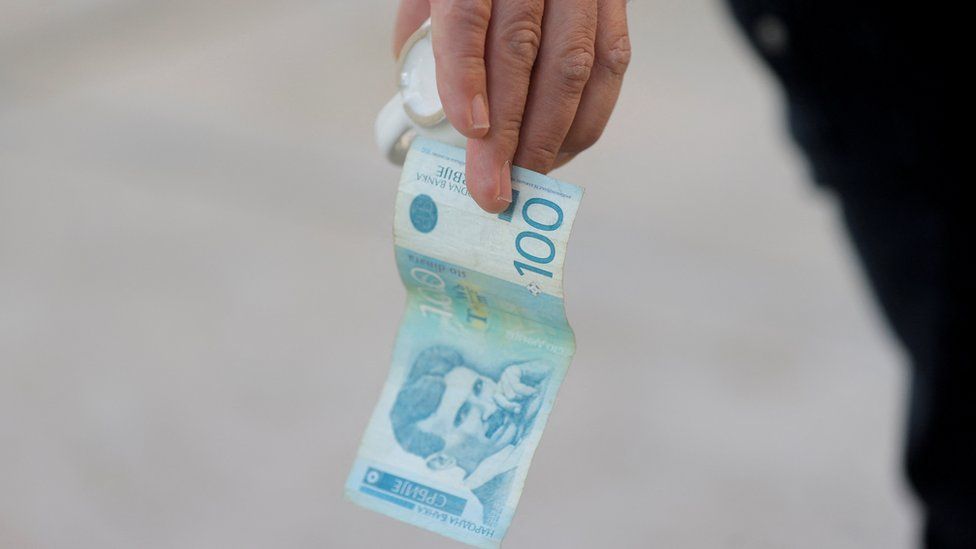-

-
-
Loading

Loading

Kosovo's authorities are moving forward with a policy that only accepts the euro as the official currency, despite certain areas still using Serbian dinars. This decision has raised concerns among Kosovo's international partners, including the EU, US, and UK, who fear it may escalate tensions in predominantly Serbian municipalities. In response to pressure, the Kosovo government has stated that it will not immediately implement punitive measures if people continue to use the dinar. However, this is unlikely to reassure Kosovo Serbs, who have witnessed the erasure of various symbols of their identity in recent months. This removal of Serbian flags, signs, and number plates has generated further unease. The impact of the currency policy is particularly evident in places like North Mitrovica, where prices are set in Serbian dinars despite being within the borders of the Republic of Kosovo. This is because most of the population in Kosovo's four northern municipalities consists of Serbs who do not recognize Kosovo's independence declaration and maintain ties with the Serbian government. As a result, their salaries, pensions, and social benefits are paid in dinars. The sudden ban on the dinar has caught them off guard, as the announcement was made midway through January with no time for adjustment. The EU has expressed concern about the policy's consequences on the daily lives of Kosovo Serbs, criticizing the lack of prior consultation and the absence of viable alternatives. The US and UK have echoed these concerns. However, the government in Pristina has shown little inclination to listen to its supporters, arguing that the policy is not a ban but rather a measure to protect consumers and the payment system. This argument is not convincing to Kosovo Serbs or international observers, with the International Crisis Group suggesting that the currency ban is part of a broader pattern of pressure on Kosovo Serbs since Prime Minister Albin Kurti's assumption of power. They highlight security measures, embargoes on Serbian goods, and the eviction of Serbian institutions as examples. This sustained pressure has led to an estimated one in 10 Serbs leaving Kosovo in the past year, with a third leaving permanently since 2016. The International Crisis Group calls on the EU to encourage Kurti to soften his stance, but with normalization talks between Belgrade and Pristina at a standstill, Brussels faces challenges in asserting its influence. Currently, despite the ban, people in North Mitrovica continue to use dinars and can withdraw them from Postal Savings Bank cash machines. Nevertheless, for Kosovo Serbs, the currency situation contributes to a growing sense of vulnerability.